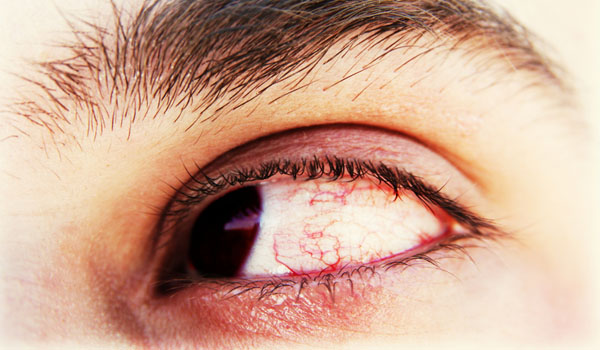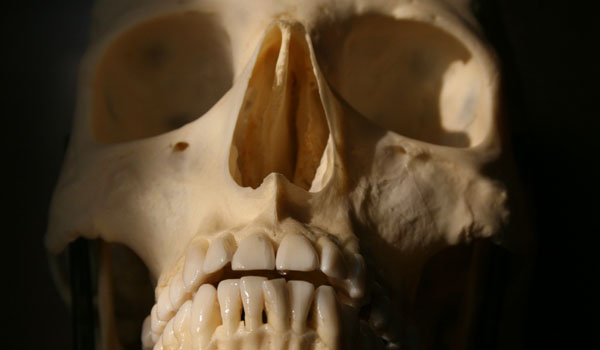7 Weirdest Medical Conditions
Intro

There are some real health conditions that even the greatest hypochondriac couldn't dream up: Persistent, unwanted orgasms, an inability to feel fear, or strange fibers growing out of the skin.
While some are more controversial than others, here's a look at seven medical conditions that top out on the strangeness scale and make your weird zit look like child's play.
Morgellons disease

We've all experienced some smarmy, icky incidents that make our skin crawl. But there are people who actually think there are things crawling beneath their skin.
Morgellons disease is a poorly understood condition in which people feel itching, biting and crawling under their skin. People with this condition also see filaments or fibers growing out of their skin, and can experience skin lesions, fatigue and memory problems, according to the Morgellons Research Foundation.
There is no known cause for the disease, but the Centers for Disease Control and Prevention started investigating potential causes in 2008. The medical community is divided on the disease some doctors say the symptoms are the result of mental illness, while others say the disease stems from a skin disorder, according to the Mayo Clinic.
Some health experts say the disease is caused by an unknown infectious agent. But others say that idea is flawed, because most patients with Morgellons don't show evidence of an infection (such as elevated levels of white blood cells), according to a study to be published in February in the American Journal of Clinical Dermatology.
Alien hand syndrome

The movie "Dr. Strangelove" tells the story of a man whose right hand seems to have a mind of its own. The strange condition is a reality for some people, and it's known as alien hand syndrome. People with the condition usually have a hand that reaches, grabs and holds onto things without the intention of the patient, according to a description of the syndrome in a 2004 article in the journal Archives of Neurology.
Get the world’s most fascinating discoveries delivered straight to your inbox.
For example, a 1998 case reported in the Journal of Neurology, Neurosurgery and Psychiatry told the tale of an 81-year-old woman right-handed woman whose left hand was uncontrollable. Her left hand choked her neck and hit her face and shoulder involuntarily, and the woman also had sensory processing and visual problems.
A 2009 article in the Journal of Stroke and Cerebrovascular Diseases found that a stroke in the brain's right parietal lobe was the impetus for a case of alien hand syndrome. And an article published in December in the journal PLoS One reported that parts of the brain that control voluntary movements may be uniquely activated in cases of alien hand syndrome.
Cotard's syndrome

Cotard's syndrome, also called Cotard's delusion and walking corpse syndrome, is a rare condition where people think that they have either died or part of their body has decayed, according to a 2004 study in the European Journal of Neurology. The syndrome is most commonly witnessed in people who have schizophrenia and bipolar disorder, but some who suffer from migraines, tumors or trauma have also reported having Cotard's syndrome.
People with Cotard's syndrome may also believe they are missing certain organs or body parts, or they may believe their soul has died, according to a 2002 article in the journal Neurology.
The syndrome is named after Dr. Jules Cotard, a Parisian neurologist who was one of the first to induce loss of brain cells in animals, according to the Neurology article.
Ehlers-Danlos syndrome

It sounds like something out of a superhero movie, but the syndrome is all too real. People who have the heritable Ehlers-Danlos syndrome have hyperflexibility the ability to bend their limbs in seemingly impossible directions. Many people with the syndrome also have super-stretchy skin; however, they also bruise easily and have slow wound healing, according to a 2010 article in the journal Genetics in Medicine.
Half the people with Ehlers-Danlos syndrome have mutations in their COL5A1 and the COL5A2 genes, with one in 5,000 people around the world thought to have the syndrome. However, the true number of people with these mutations may be a lot higher, according to the Genetics in Medicine article. There are eight known mutations associated with the syndrome, and they lead to a reduced amount of collagen in the patients' connective tissues, the article said.
There are six types of the syndrome, with varying effects on the skin and joints, according to the National Institutes of Health.
Urbach

Wiethe disease
The case of a woman incapable of feeling fear has this disease, which is a rare genetic disorder that can lead to hardening of brain tissue, according to a 2010 report in the journal Current Biology. As is the case with the woman in the study, known as SM, the disease destroyed her amygdala the almond-shaped structure in the brain that generates fear responses.
The woman was exposed to haunted houses, live snakes and spiders and films that would normally elicit a fearful response. But she didn't exhibit anything beyond a mild fear response to any of the stimuli. SM also didn't record anything indicative of fear in a daily journal she was required to keep.
The researchers said the finding could mean progress for treatments for post-traumatic stress disorder.
Persistent sexual arousal syndrome

For people with persistent sexual arousal syndrome (PSAS), orgasms may bring more embarrassment and distress, rather than being pleasurable sensations .
That's because this condition, which occurs mostly in women, causes hypersensitivity to orgasm with the slightest application of pressure and sometimes without any trigger at all even without feelings of sexual desire, according to Boston University School of Medicine.
The syndrome was first diagnosed in 2001, but little is known about its cause, according to BUSM. People who have PSAS often feel embarrassed, isolated and distressed because of the syndrome, a 2005 study in the Journal of Sexual Medicine reported. In fact, 40 percent of people in the study told of high levels of distress about the condition, with 35 percent reporting moderate levels of distress.
Haemolacria

Haemolacria is a condition in which a person cries tears of blood. It most often occurs in fertile women who are menstruating, according to a 1991 article in the journal Acta Ophthalmologica, but even then the blood is not visible to the human eye. Haemolacria can also occur as a result of severe conjunctivitis.
In October, a woman in India named Rashida Khatoon was reportedly crying tears of blood, even though doctors weren't able to find anything medically wrong with her besides the haemolacria.
Pass it on: There are lots of strange medical conditions out there, from alien hand syndrome to super-bendy joints.
Follow MyHealthNewsDaily staff writer Amanda Chan on Twitter @AmandaLChan.
 Live Science Plus
Live Science Plus






